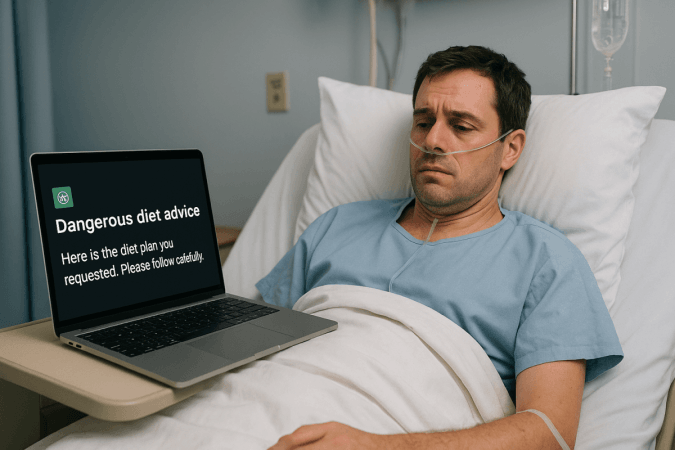
In a rare and alarming case, a man in the United States developed life-threatening bromide poisoning after following diet advice given by ChatGPT.
Doctors believe this could be the first known case of AI-linked bromide poisoning, according to a report by Gizmodo.
The case was detailed by doctors at the University of Washington in 'Annals of Internal Medicine: Clinical Cases'.
They said the man consumed sodium bromide for three months, thinking it was a safe substitute for chloride in his diet. This advice reportedly came from ChatGPT, which did not warn him about the dangers.
Bromide compounds were once used in medicines for anxiety and insomnia, but they were banned decades ago due to severe health risks.

Today, bromide is mostly found in veterinary drugs and some industrial products. Human cases of bromide poisoning, also called bromism, are extremely rare.
His condition quickly worsened into a psychotic episode, and doctors had to place him under an involuntary psychiatric hold.
After receiving intravenous fluids and antipsychotic medicines, he began to improve. Once stable, he told doctors that he had asked ChatGPT for alternatives to table salt.
The AI allegedly suggested bromide as a safe option -- advice he followed without knowing it was harmful.
Doctors did not have the man's original chat records, but when they later asked ChatGPT the same question, it again mentioned bromide without warning that it was unsafe for humans.
Experts say this shows how AI can provide information without proper context or awareness of health risks.
The man recovered fully after three weeks in hospital and was in good health during a follow-up visit. Doctors have warned that while AI can make scientific information more accessible, it should never replace professional medical advice -- and, as this case shows, it can sometimes give dangerously wrong guidance.
(With inputs from IANS)

















